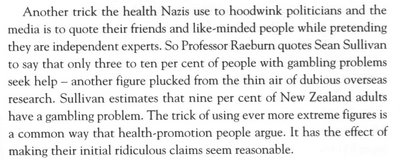This is the only international report I have seen about the Kahui killings. Has to be read to be believed;
The tragic deaths in New Zealand last month of 11-week old Maori twins is being used to justify a wide-ranging campaign by the media, police and political establishment against the most oppressed and impoverished layers of the country’s Maori population.....
The purpose of this vicious campaign has been to avoid any probing of the deeper social causes of the tragedy. While the violence committed against the Kahui twins was particularly horrendous, so too are the social conditions under which the most vulnerable are forced to live their lives. The hysteria is aimed at directing any real examination away from where the real responsibility lies—with successive governments of all stripes and their social agendas.....
Far from tackling the terrible social problems that lie at the heart of the Kahui twins’ death, these “solutions” will simply create the conditions for more such tragedies. They will serve to further brutalise the most oppressed sections of society and to create even more intolerable pressures on their daily lives. At the same time, they will be used to drastically reduce government expenditure on social programs—a key demand of New Zealand big business.
No Brainer With Angela Rayner: Steve Reed Is Not A Bully!
49 minutes ago










